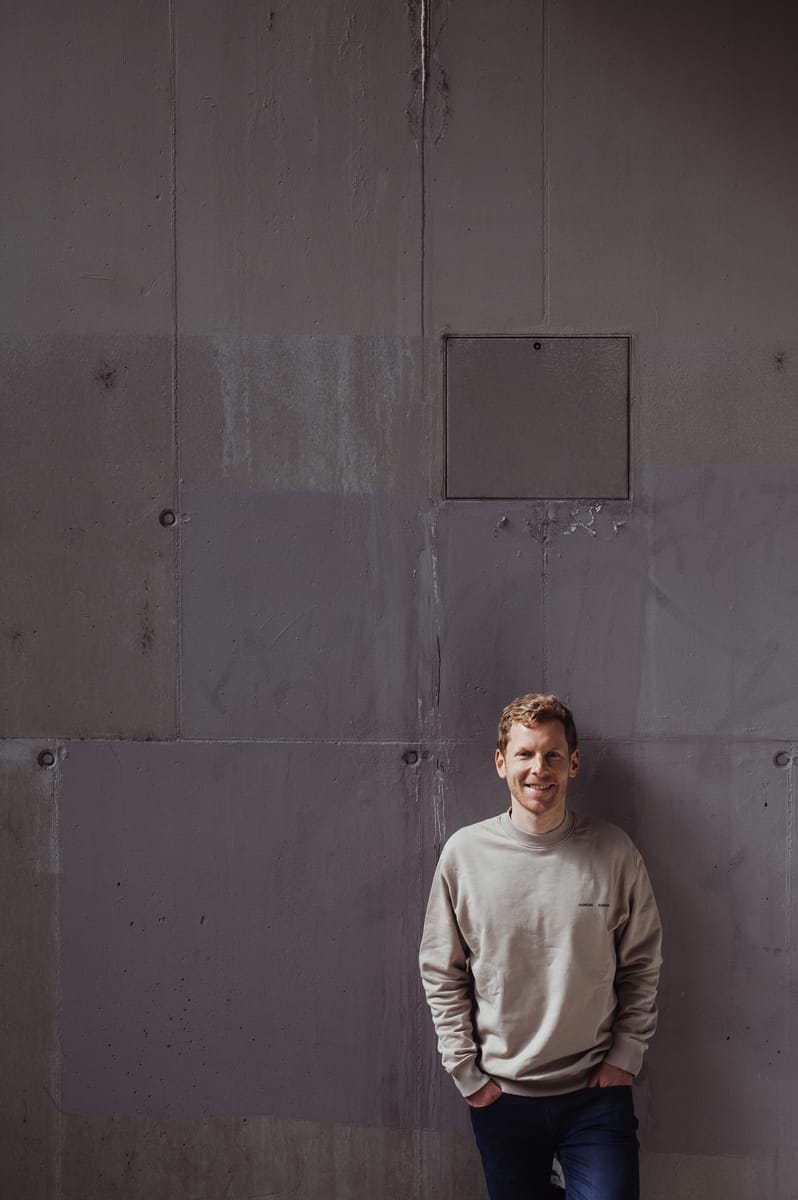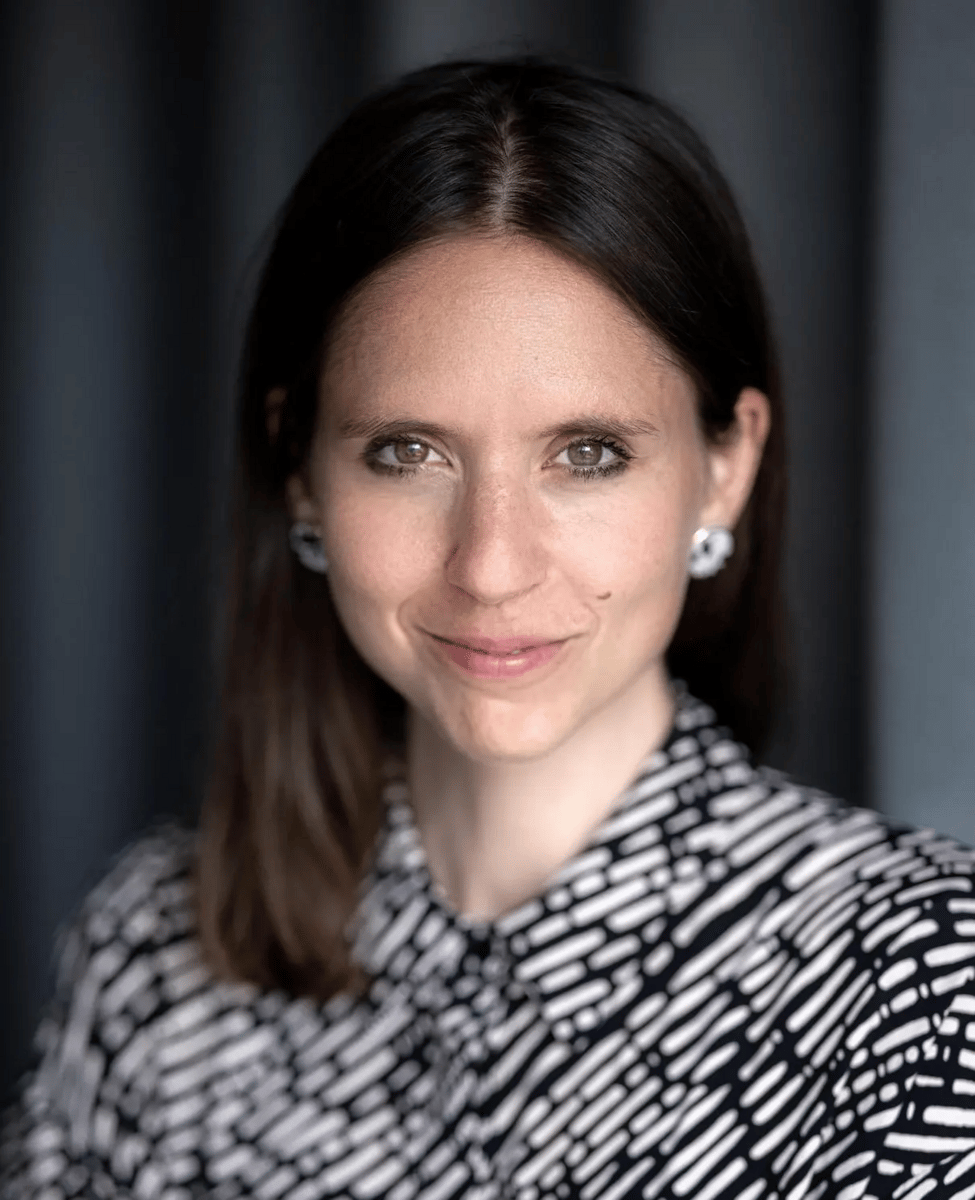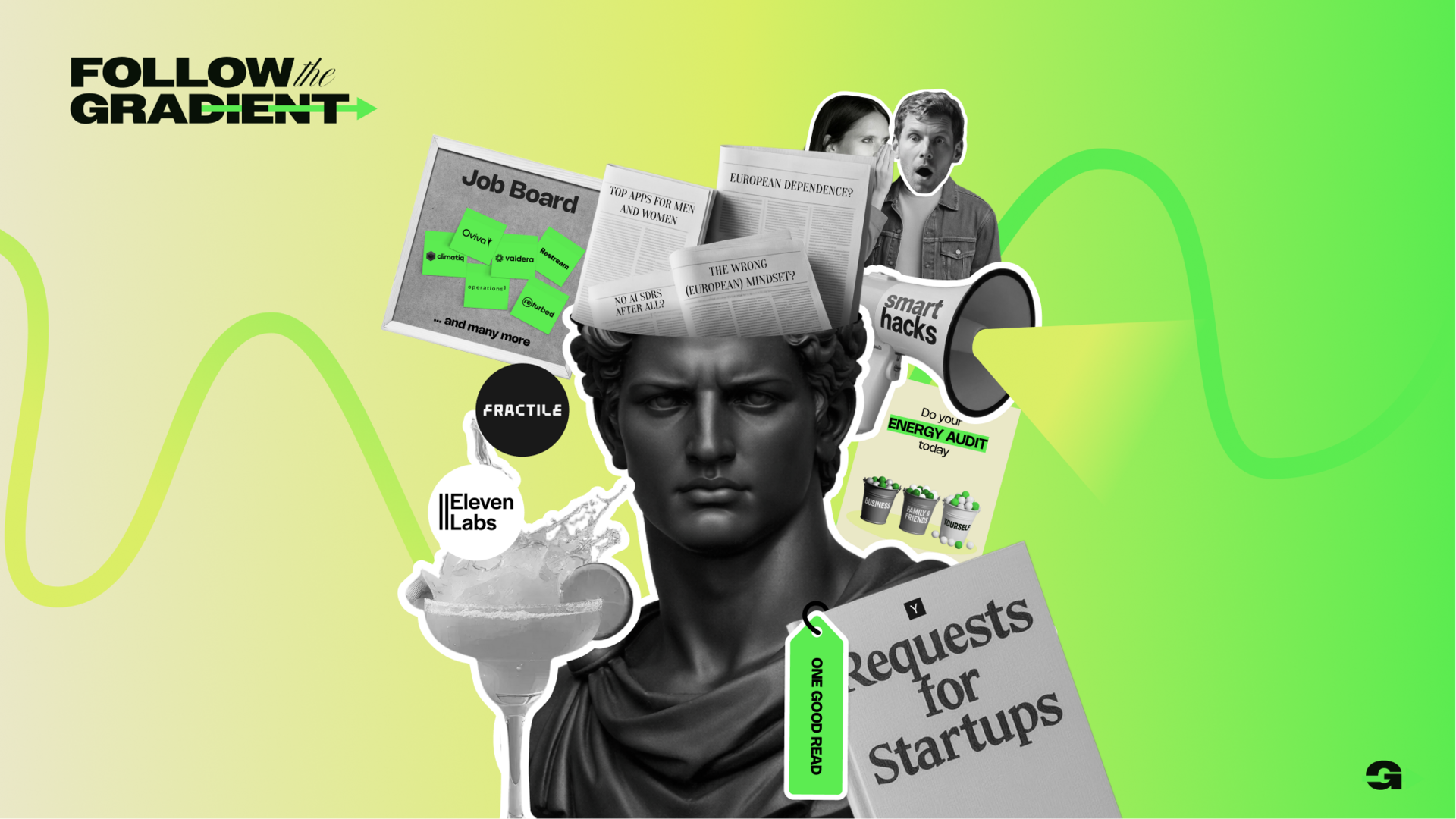Dear hustlers, founders, operators and visionaries,
What if a single DM could change the trajectory of your life and ignite a movement across a continent? That’s exactly what happened to Kitty Mayo, CEO of Project Europe, who went from pondering a career in painting to building one of the most electric early-stage founder communities in Europe.
In this conversation, we step into the surreal early days of Project Europe: from a spontaneous call with Harry Stebbings to a viral launch while Kitty was halfway up a mountain with no Wi-Fi. This story is about purpose, agency, and reimagining what’s possible when young founders are given cultural permission to go all in. Kitty shares why Europe must learn to celebrate audacious ambition, and how she’s navigating the speed and pressure of building something that matters. Exclusively for our newsletter subscribers, Kitty has shared additional insights below.
In the meantime: Follow the Gradient and stay tuned!
PS: Has this e-mail been forwarded to you? Sign up here.
How to build Europe’s new startup powerhouse
What you will get out of this episode
In our conversation, Kitty shares:
How to recognize when you're standing at the edge of a once-in-a-lifetime opportunity
How to build an early-stage founder movement without following Silicon Valley's rulebook
Why earnestness beats hype when you're looking for world-changing founders
How to make friends who share your obsession and turn them into your unfair advantage
and much more!
Our main take away’s
Earnestness and obsession outweigh hype every time: Kitty emphasizes that the best founders aren't chasing status, they’re acting on an internal drive that’s often been present since childhood. They build from a place of long-term conviction, not trend-chasing.
Europe’s founders don’t need permission - until they do: One of Project Europe’s core insights is that young European founders often lack social and cultural permission to pursue big, risky ideas. Changing that narrative is just as important as funding the work.
The best networks aren’t built in boardrooms, they’re built in cars, kitchens, and cold rivers: Project Europe’s unconventional approach to relationship-building (think: road trips, ice swims, borrowed office space) has created a sense of deep trust and camaraderie that accelerates everything else.
Ambition doesn’t have to wait for San Francisco: Drawing from the story of Sergio Leone, Kitty shares a compelling case for building something global from your own backyard—by cherry-picking what works and discarding what doesn’t.
Validation is powerful, but purpose is stronger: VC funding can provide confidence and clarity, but it’s no substitute for being obsessed with your mission. Founders who anchor their work in a clear, internal “why” move differently—and go further.
How to reach out to Kitty
Exclusive from Kitty
What’s one way you spot “high-agency” people in an interview or meeting?
People who have already started building - it seems obvious, but low agency people apply to Project Europe looking for permission to start. The people who join Project Europe started working, in earnest, towards their ambition at a young age.
What’s a small operational change you made at Project Europe that had an outsized impact?
We halved the length of our initial interviews to 15 minutes from 30. The cost of interviewing someone who turns out to be a ‘not now’ is much lower which means we interview many more people and are often really surprised. If anything sparks our curiosity, we will invite that person for an initial call. It is amazing how much you can learn in 15 mins.
When you think about Europe’s most ambitious young builders, what do they consistently do differently?
They build. Again, it sounds obvious, but they don’t spend time seeking validation or learning how to do things the ‘correct’ way, they just start, start making decisions, and learning as they go. The “just build-ers” are invariably further ahead.
What’s a belief about scaling or leadership you held two years ago that you’ve since changed your mind on?
You can build tiny teams that punch above their weight if you work with people who realise that it’s the hard, low-status work leads to the glorious outcomes.
You’ve spoken about wanting to make risk-taking culturally acceptable in Europe. If you had to give one piece of advice to European parents, professors, or policymakers to help make that shift, what would it be?
To parents - if your kid is smart and proactive, trust their judgement and let them make their own decisions, successes, mistakes. The paths to success and safety look very different to the paths that led to those destinations when you were growing up; your kids have totally different data. Inform them, yes, but trust them, support them or at worst disagree and commit to support them.
What is success for you?
It sounds trite but having a rich inner life, furnished by the inspiring people I meet and work with, people I love, the books, films, music and art I consume, and the adventures go on.
What books, podcasts, articles inspired you?
On Self Respect by Joan Didion (I read this weekly)
A Personal History by Katherine Graham
Heart Valley - a beautiful short documentary film by my friend Christian Cargill
What’s one advice, founders should actually ignore?
Probably most of it. The most important thing you can do is build conviction in your ability to find the best path forward - if the advice feels like a crutch, you need to do some work.
What are habits, activities or rituals that keep you sane (while scaling your business)?
Having best friends who don’t give a f*ck about what I do for work.
What is one “growth hack” that has a positive impact on you or the company?
Working with Harry Stebbings. Distribution matters.

Follow the Gradient is a weekly newsletter and podcast by the serial founders Melanie Gabriel & Christian Woese about how to build a business from Europe while staying sane.










